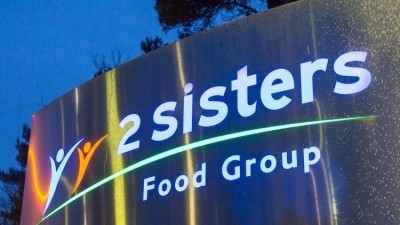COVID-19 depletes local authority food safety staff

Speaking at the Chartered Institute of Environmental Health's virtual food safety conference on 22 October, Miles told registrants: "The picture varies widely, but across England over 40% of local authorities have lost 70% or more of staff in their food team to COVID-19 re-deployment.
"These figures are from a survey the FSA carried out in September, and we have intelligence from local authorities that the situation has deteriorated further in the month since then.
"I want to be clear to the relevant parts of Government that there simply isn’t enough funding available for local authorities to carry out their duties on food safety and this poses a real risk to consumer protection.
Food safety and food standards
"I know, like me, you want to protect the country’s ability to assure food safety and food standards. This is not just critical to public health in relation to food, and to consumer safety, but also vital to the food industry and to the UK’s ability to export food."
Miles said a National Audit Office (NAO) report last year found food hygiene staff numbers declined by an estimated 13% relative to the number of food businesses operating between 2012-13 and 2017-18. in addition, the number of food standards staff fell by an estimated 45%.
"Local authorities have told us that the situation has continued to decline since that NAO report. At the start of this financial year, only 80% of the professional posts that local authorities need to run their food service were allocated budget for 2020/21. In other words, local authority food teams went into the pandemic already 20% below full strength."
Miles said the FSA had appealed to Government for more funding to strengthen local government ranks.
Rise of direct-to-consumer websites
The pandemic had fuelled the rise of websites selling food and drink direct to consumers and this piled on the pressure by posing new food safety challenges, she said.
"In the last few months, more restaurants have been converting to takeaways, food wholesalers have started selling direct to consumers via online retail platforms. Over the period since COVID-19 started we have seen not far off 20,000 businesses registering through Register a Food Business; and those that are operating from domestic settings have risen from only 30% pre-COVID to 45% in early October.
"New business models can bring new risks: with no ‘bricks and mortar’ premises consumers don’t always know from whom they are buying. For regulators, it can be difficult to establish which businesses are operating where, who is operating them, to determine what activities they are carrying out and to manage the risk they present to consumers.
"The regulatory system has traditionally been built around physical premises and that increasingly doesn’t reflect the reality of the food system."
JustEat, Amazon
The growth of online food retail services from firms such as JustEat and Amazon and traditional supermarkets was another huge recent change in the supply chain, she said.
That changing food and drink retail landscape put increasing pressure on the Primary Authorities to which these companies were answerable. As a result, the FSA was considering how the system could be improved.
Other ways in which the policing of food safety could be improved included working with private sector assurance groups.
The FSA was also considering drawing more on the internet of things - data, networks and sensors for up to date information and intelligence on the industry.
In addition, Miles said the agency was working with local authorities to deliver remote assessments of food businesses. "We are about to conduct an independent evaluation of local authorities' experiences of this. That evaluation will inform our thinking about how remote assessment might be used in the future, so please do let us have your views."
















